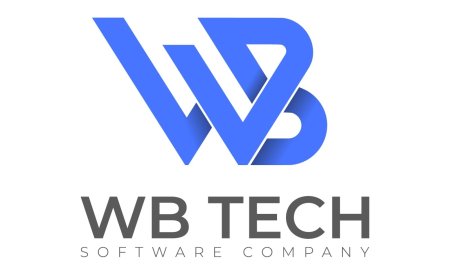Is Your Business Ready to Partner with a Blockchain Development Company?

In a rapidly evolving digital world, blockchain is no longer just a buzzword—it’s a transformative technology that’s redefining how businesses operate. Whether it's enhancing transparency, improving data security, or streamlining processes, blockchain offers powerful solutions across various industries. However, the real challenge lies in implementing it effectively. That’s where partnering with a Blockchain Development Company becomes essential.
But before jumping in, you need to evaluate if your business is truly ready. This blog explores the signs that indicate your business is prepared, the potential benefits of blockchain integration, the challenges you might face, and how to choose the right blockchain partner to ensure long-term success.
Understanding Blockchain: A Quick Primer
Blockchain is a decentralized digital ledger that records transactions across multiple computers. It ensures that records cannot be altered retroactively without altering all subsequent blocks and the consensus of the network. This technology supports cryptocurrencies like Bitcoin but also offers applications in sectors like supply chain, finance, healthcare, real estate, and more.
Blockchain’s core attributes include:
- Decentralization: Eliminates the need for a central authority.
- Transparency: All transactions are publicly recorded.
- Immutability: Data, once entered, cannot be changed.
- Security: Uses cryptography to secure data.
Why Businesses Are Turning to Blockchain
Companies worldwide are adopting blockchain to drive innovation, increase trust, and reduce operational costs. Here are some compelling reasons:
1. Improved Security and Data Integrity
Blockchain provides secure storage of data, reducing the risk of data tampering, hacking, and fraud.
2. Transparent and Traceable Transactions
Every transaction is recorded and traceable, offering better compliance and auditability.
3. Enhanced Operational Efficiency
Smart contracts automate processes, reduce intermediaries, and save time.
4. Cost Reduction
Eliminating third parties and minimizing fraud leads to significant savings.
5. Customer Trust
Transparency and accountability build consumer trust, particularly in finance, healthcare, and supply chains.
Is Your Business Ready? Key Factors to Consider
Before engaging a Blockchain Development Company, assess the following readiness indicators:
1. Clear Business Use Case
Blockchain is not a one-size-fits-all solution. You must identify a problem that blockchain is uniquely suited to solve.
Ask yourself:
- Do you need a tamper-proof ledger?
- Are intermediaries slowing down your processes?
- Do you require secure and transparent transactions?
If the answer is yes, blockchain could be a good fit.
2. Stakeholder Buy-In
Adopting new technology requires alignment across leadership, IT, legal, and operations. Ensure your internal stakeholders are on board with exploring blockchain-based solutions.
3. Regulatory Awareness
Understand the legal and compliance landscape in your region. Blockchain regulations vary across industries and geographies. Working with legal teams ensures compliance before launch.
4. Digital Infrastructure Readiness
You’ll need a robust IT infrastructure that can integrate with blockchain networks. Cloud capabilities, data storage systems, and APIs should be evaluated.
5. Data Strategy and Interoperability
Can your current systems exchange data efficiently with blockchain platforms? Evaluate your data formats, APIs, and access controls.
6. Long-Term Vision and Scalability
Blockchain integration is not a quick fix. Are you prepared for a long-term investment in this technology? Consider scalability and future-proofing from the start.
Benefits of Partnering with a Blockchain Development Company
A reputable blockchain development firm brings strategic, technical, and domain expertise that can accelerate your journey.
1. Tailored Consultation and Strategy
A top-tier Blockchain Development Company starts with understanding your business needs, helping you define use cases and roadmap development.
2. Custom Blockchain Solutions
From permissioned (private) to permissionless (public) networks, a professional team can help you choose or build the right solution.
3. Smart Contract Development
Automate and secure your workflows using smart contracts. Development companies can code, test, and deploy these efficiently.
4. Integration with Existing Systems
Blockchain should not operate in isolation. These companies help integrate blockchain with CRM, ERP, cloud systems, and more.
5. Security and Compliance Expertise
They ensure data privacy, encryption, identity management, and compliance with industry standards and regulations.
6. Faster Time-to-Market
With agile methodologies and cross-functional teams, development partners accelerate launch and reduce time to value.
Common Blockchain Applications by Industry
1. Finance & Banking
- Cross-border payments
- KYC/AML processes
- Asset tokenization
2. Supply Chain Management
- Real-time tracking
- Authenticity verification
- Transparent audits
3. Healthcare
- Patient records sharing
- Clinical trial transparency
- Drug supply chain monitoring
4. Real Estate
- Smart contracts for property transactions
- Transparent ownership records
5. Retail and E-commerce
- Product provenance
- Loyalty rewards on blockchain
6. Government and Public Services
- Digital identity
- Voting systems
- Land registry
Questions to Ask Before Hiring a Blockchain Development Partner
Choosing the right partner can make or break your blockchain initiative. Here are critical questions to ask:
1. What is your experience with similar projects?
Look for a portfolio of blockchain solutions in your industry.
2. What platforms and tools do you use?
Popular ones include Ethereum, Hyperledger, Binance Smart Chain, Polygon, Solana, and more.
3. Do you offer end-to-end services?
From consulting to deployment and maintenance, a full-service firm ensures smoother execution.
4. Can you ensure scalability and future upgrades?
Blockchain should grow with your business. Choose partners who plan for long-term needs.
5. How do you approach security and compliance?
Ensure they follow best practices in cryptography, data protection, and regulatory adherence.
6. What is your pricing and engagement model?
Clarify costs, engagement models (fixed vs. hourly), and support terms upfront.
Potential Challenges and How to Overcome Them
Even with expert guidance, blockchain implementation may pose some challenges:
1. Technical Complexity
Solution: Rely on expert developers and architects from a blockchain firm.
2. Lack of Industry Standards
Solution: Stick to widely adopted protocols and participate in standardization initiatives.
3. Integration Difficulties
Solution: Use APIs and middleware that enable seamless communication between legacy and blockchain systems.
4. User Adoption
Solution: Create user-friendly interfaces and provide training sessions to encourage adoption.
5. High Initial Investment
Solution: Begin with a Minimum Viable Product (MVP) and scale gradually.
Steps to Partner with a Blockchain Development Company
Here’s how to get started once you’ve decided to take the plunge:
Step 1: Define Your Objectives
Know what you want to achieve—security, transparency, automation, etc.
Step 2: Conduct Market Research
Understand your competitors and how they use blockchain.
Step 3: Prepare an RFP or Project Brief
List your requirements clearly before approaching development firms.
Step 4: Shortlist Vendors
Look at portfolios, reviews, and experience. Schedule consultations.
Step 5: Evaluate Proposals and Sign an NDA
Ensure your business idea is protected during discussions.
Step 6: Run a Pilot or POC (Proof of Concept)
Test feasibility and performance on a small scale before full deployment.
Step 7: Launch, Monitor, and Scale
Once successful, go for a full rollout with performance monitoring and scaling plans.
Real-World Examples of Successful Blockchain Adoption
Walmart – Supply Chain Transparency
Walmart uses blockchain to trace food products from farm to shelf, reducing recall time from 7 days to 2.2 seconds.
Maersk and IBM – TradeLens
They built a blockchain-based global shipping platform, increasing transparency and reducing paperwork.
De Beers – Diamond Verification
De Beers uses blockchain to trace diamonds from mine to retail, ensuring authenticity and ethical sourcing.
These examples highlight the scalability and versatility of blockchain when implemented strategically.
Conclusion: Start Your Blockchain Journey with Confidence
Blockchain can elevate your business to new heights—but only if implemented thoughtfully and strategically. Partnering with a seasoned Blockchain Development Company helps you unlock the true potential of this technology by aligning it with your specific business needs.
Whether you're in finance, healthcare, logistics, or real estate, now is the time to assess your readiness and start small with a pilot program. As blockchain technology continues to mature, early adopters will be the ones reaping long-term rewards.
If your business is also exploring mobile-first solutions, consider combining blockchain with a custom mobile app. Engaging with an expert mobile app development company ensures your app not only delivers blockchain-powered features but also offers a seamless user experience that drives engagement and growth.





































































